AUGUSTA — Modesto Horta kept his hands steady and his focus sharp Wednesday as more than 100 high school students watched intently.
He took the chisel and hammered away at a piece of wood that ultimately will be a jaguar mask. Then it was on to the hook knife to carve some of the intricate markings found on the big cat’s face.
Finally, he used a gouge to carve wood out of the back of the mask.
Horta and his brother Manuel spent Wednesday showing the skills they’ve developed over more than 35 years as wood carvers and artists in a small Mexican village high in the mountains.
The carvers came to Maine a week ago and will spend the next two months traveling around to schools in New England as part of Margaritas’ Education Outreach Program. The duo took turns carving and answering questions Wednesday morning during several presentations at Cony High School.
“You don’t even start a mask until you can visualize it in the wood,” said Horta, through an interpreter.
One by one, students filed past a table at the front of the auditorium filled with masks of various shapes and sizes and of animals and faces and symbols. They remarked about the detail in each mask and the time and effort it must take to make one.
“I can’t even imagine having to do that, and it’s really fascinating,” said sophomore Cecilia Guadalupi. “I’m sure tons of people love their work.”
Modesto Horta told the audience that he and his brother typically carve from about 8 a.m. to 6 p.m. when they’re home in Tocuaro, a village of about 700 people about 230 miles west of Mexico City. They are always working on masks for upcoming fiestas, holidays and celebrations such as the Day of the Dead, and for people to buy.
“If you give them enough time, they can make almost anything,” said Pat Picciano, a part of the restaurant’s education program. Picciano met the brothers in Mexico years ago while he was an apprentice carver studying under their father, Juan Horta, considered one of the finest mask makers in Mexico until he died 11 years ago.
Using a piece of basswood — because the copal they use in Mexico isn’t found in Maine — the Horta brothers showed more than 600 students how they use gouges, knives, chisels and machetes to carve masks that sell from anywhere between $4 and $500, depending on the size and the design.
“It’s very impressive, and he’s done so much since he started a few hours earlier,” freshman Jared Philbrook said. He was amazed at the level of focus and skill and hand-eye coordination required to carve any one of the 75 or so masks on display.
Art teacher Jason Morgan said his students can appreciate the work and the effort the brothers put into their creations. It’s a perfect segue, he said, as they move from creating two-dimensional art to making things with an added dimension.
“Sometimes it gets lost because we have 3-D printers, but I don’t think you can replicate the quality of the work when something is made by hand,” he said. “The amount of skill and focus it requires can help our students gain a certain awareness.”
In addition to watching master craftsmen and artists at work, Spanish teacher Gretchen Livingston said the presentations expose the students to a different culture and can work to dismiss some of the rhetoric about Mexico and its people.
“For them to see how hard these men work and that they’re good people who want to do well for their families is really significant,” Livingston said.
World language classes, social studies and art classes visited the brothers throughout the day. Caroline Mosca, a sophomore, was planning to buy one of the smaller masks.
“I mean, (Modesto) is using the same rock to sharpen his tools that his dad used,” Mosca said. “It’s really refreshing to be introduced to that culture rather than (listen) to all the things you hear in the news.”
Modesto said his favorite type of mask to make is a devil mask — mascara del diablo — which villages use during mock battles between good and evil. Some masks the brothers make depict life and death on each side; some are skulls and skeletons or tigers and owls. All take a lot of hard work.
The brothers will be in the U.S. until after Thanksgiving, Picciano said, and they’ll be visiting about 20 schools and 12 restaurants over the next several weeks. They’ll be at Margaritas Mexican Restaurant on Western Avenue in Augusta from 4 p.m. to 9 p.m. Sunday demonstrating their carving methods, talking to customers and helping raise money for the Cony High School Spanish club.
About 8 million people make their living as artists in Mexico, Picciano said, and mask making is something that the Horta brothers share with other brothers and their children. Modesto Horta said their sons are in college but practice their carving and sharpen their skills when they come home on weekends.
In their village, there are five mask-making families, and Modesto Horta said there are competitions to see who made the best mask. There have been masks of former Mexican presidents, famous singers such as Juan Gabriel and even Osama Bin Laden.
Jason Pafundi — 621-5663
Twitter: @jasonpafundiKJ
Send questions/comments to the editors.


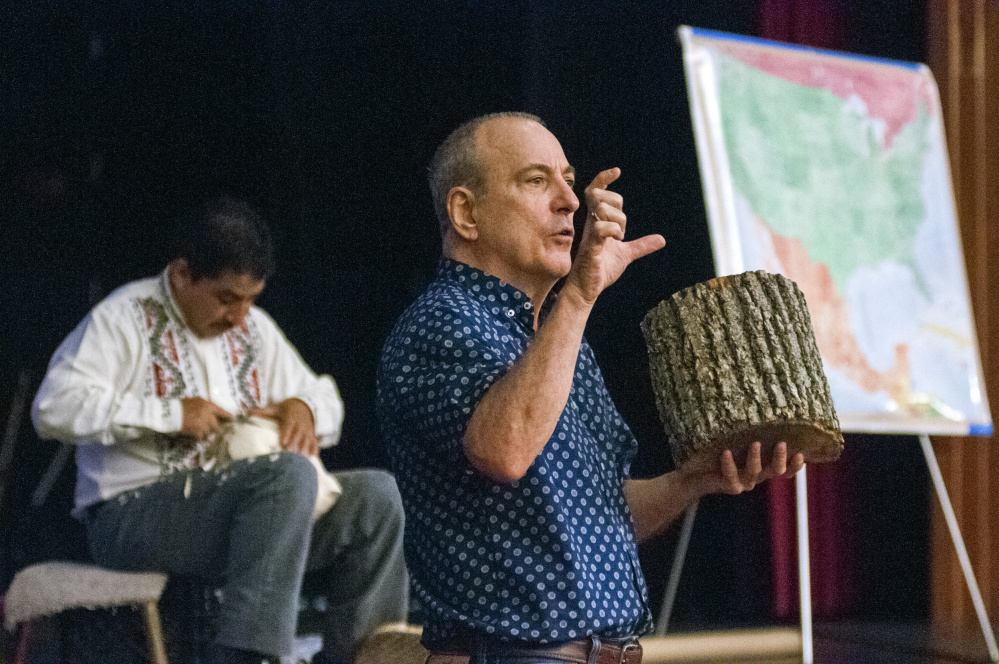
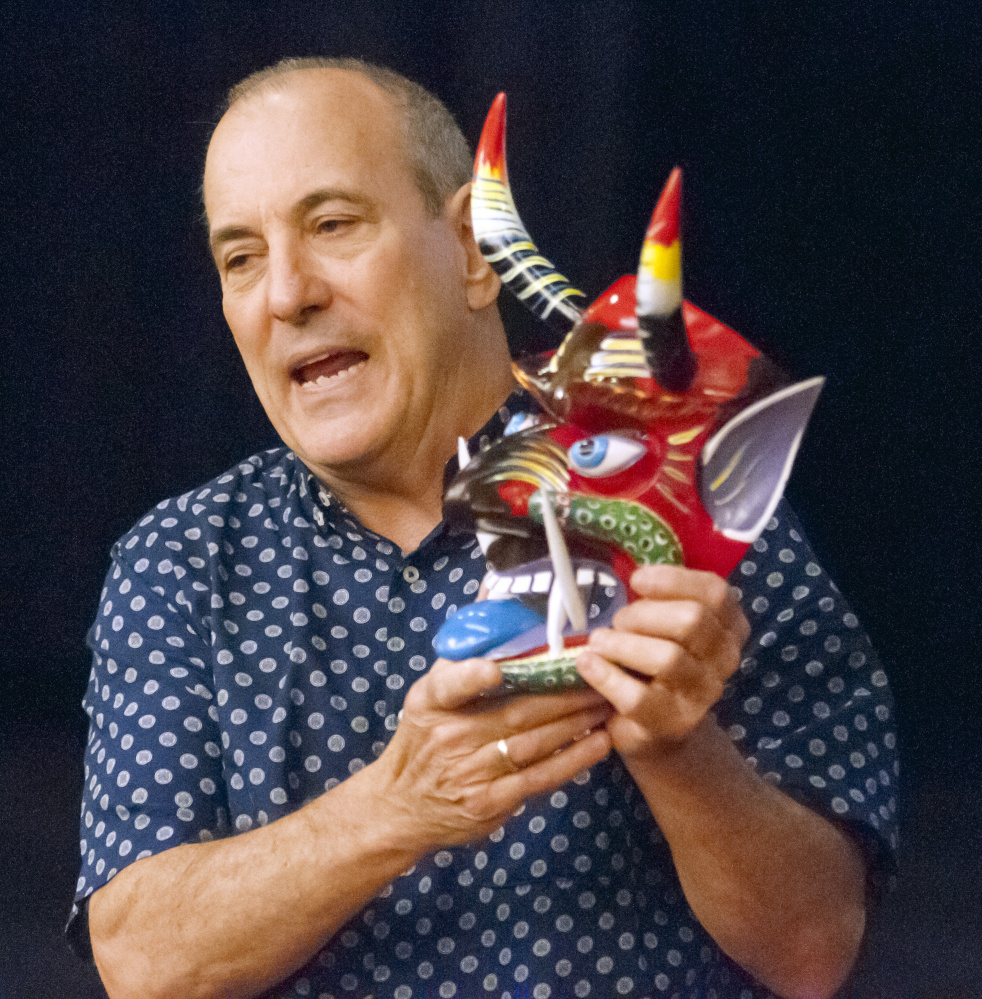
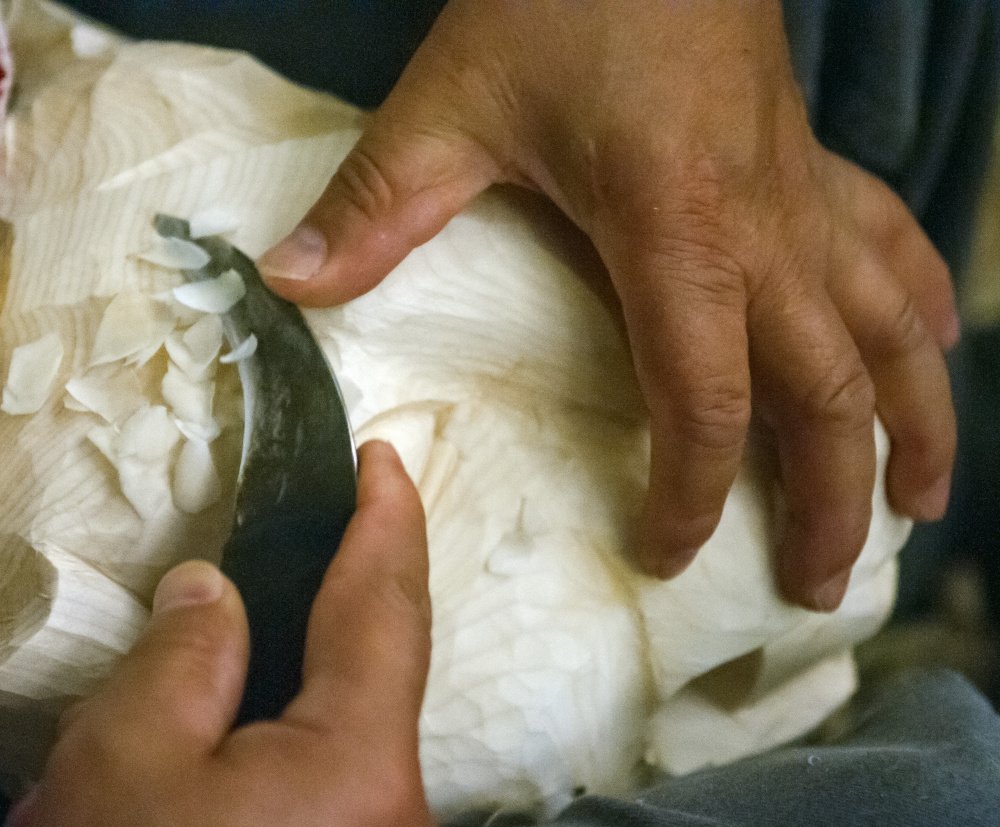
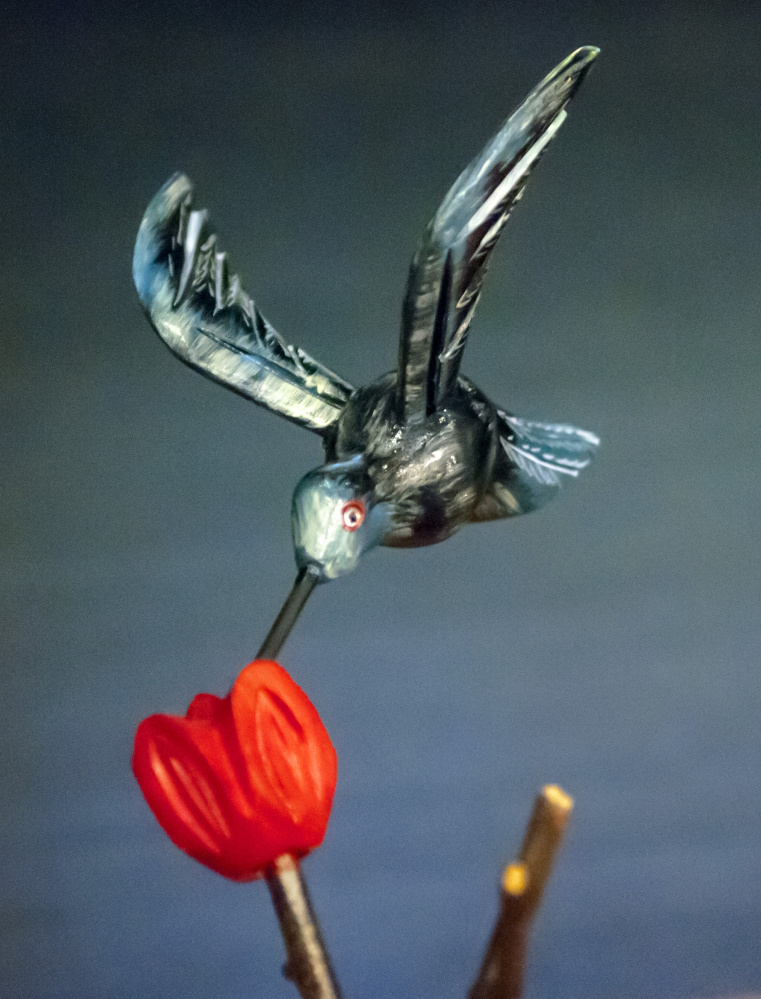
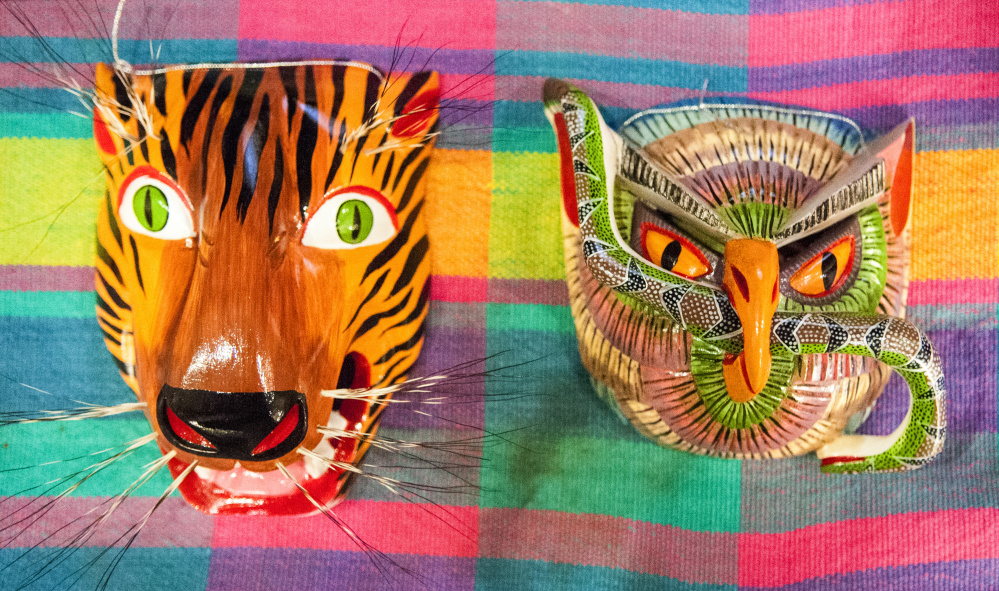
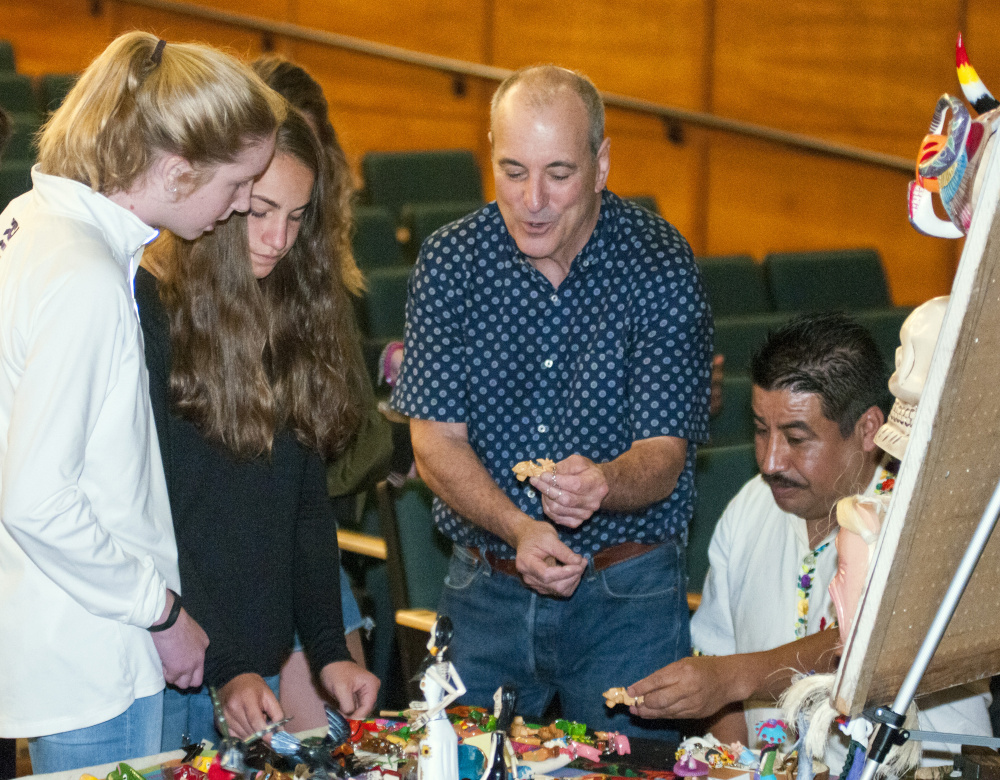
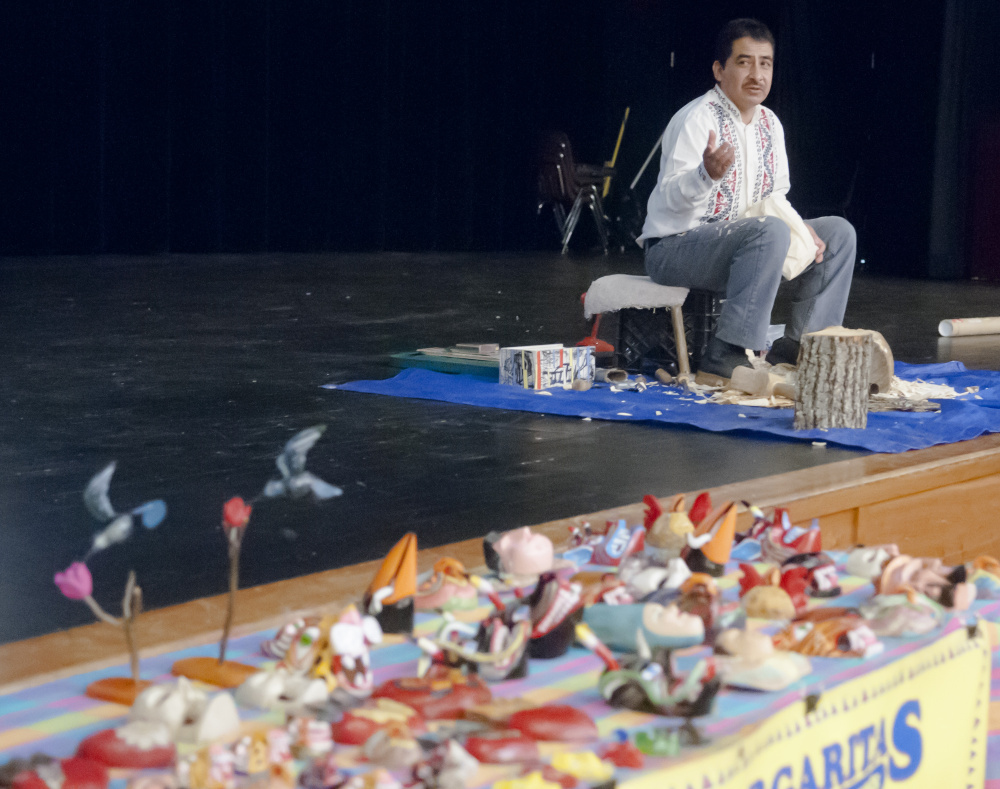

Success. Please wait for the page to reload. If the page does not reload within 5 seconds, please refresh the page.
Enter your email and password to access comments.
Hi, to comment on stories you must . This profile is in addition to your subscription and website login.
Already have a commenting profile? .
Invalid username/password.
Please check your email to confirm and complete your registration.
Only subscribers are eligible to post comments. Please subscribe or login first for digital access. Here’s why.
Use the form below to reset your password. When you've submitted your account email, we will send an email with a reset code.